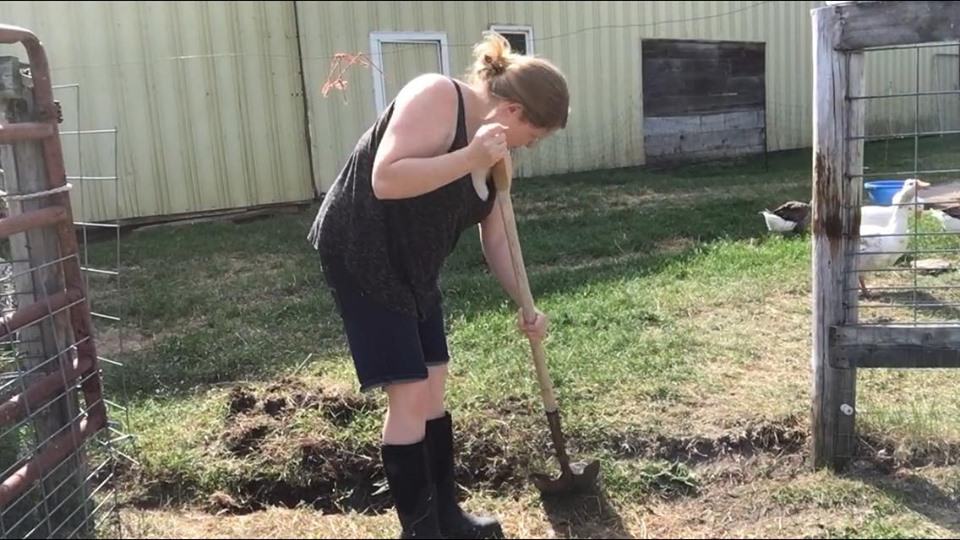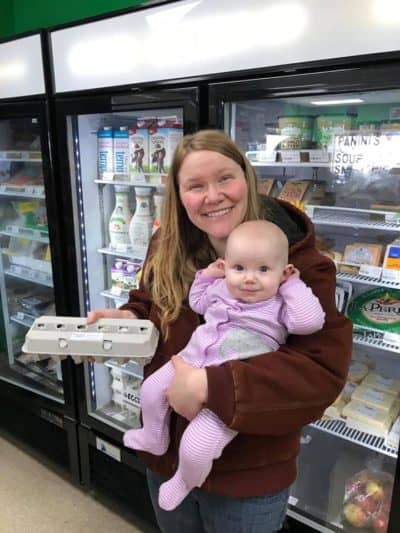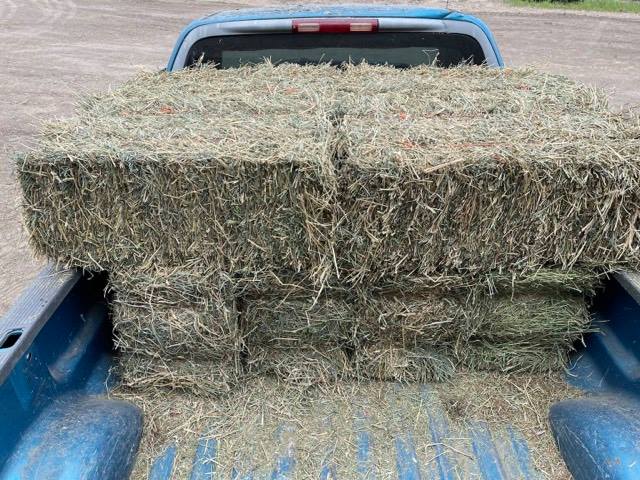Composting Pros and Cons
No matter what sort of place you live, composting can be a great addition to your home, small farm, wherever! Let’s look at composting pros and cons.

What is composting?
Composting is when you take plant material of some kind and let it break down over time. With the right balance of compostable things (plates, napkins, etc) and organic matter (meaning it comes from natural things like plants) these materials will eventually turn into a beautiful nutrient-rich compost that can be added to gardens, house plants, lawns, etc.
What sort of things can I compost?
There is a huge variety of compostable materials. For the most part you want to stick to natural, plant-based materials. This includes vegetable scraps, garden trimmings, wood chips, etc.
Additionally, some plastic bags are compostable. Other new compostable materials include tableware, plates, cups, napkins, etc.
You can compost things like dairy products and meat, but you definitely want to keep them to a minimum. They will break down much slower than plant-based materials, they get stinky, and they also are more likely to attract animals to your pile that might make a mess.

This post has some affiliate links. That means I make a small commission at no extra cost to you. See my full disclosure here.
How do I compost?
If you have a composting machine (more on those below) it doesn’t really matter how you put your raw materials in, you will get a good end product no matter what. If you have something more like a compost pile (again more on that below) then you will have to be mindful of how you fill your bin with different types of stuff.
The composting process will be the most efficient if you compost a balance of “brown” and “green” materials. For example, dried-up leaves, old dried garden plants, paper plates, brush from the yard, etc. would be considered “brown”. “Green” materials might be grass clippings, vegetable scraps, etc. You typically want a good layer of green stuff, followed by a layer of brown on top.
If you have too much “green” material in a big pile it will not compost, it will just rot. A good indicator of too much green is if your pile isn’t breaking down at all and it has a rotten sort of smell.
Once you have nice lasagna style layers of brown and green materials you will eventually need to turn your pile. This introduces more oxygen into the pile, which is necessary for the biology in the pile to breathe and do their job of breaking down the plant materials.
Pros of Composting
There are many advantages to composting and many ways to do it.
Reduce Waste
Our local county recently launched a composting program where households were provided a compost bin and a bucket for their house. Each week families were asked how many times they emptied their bucket. At the end of the year, the amount of organic waste sent to their compost bins was 70,000 pounds! Rather than see all that food waste end up in landfills where it can’t break down, it becomes a useful soil amendment!
Environmental Benefits
Composting can be a great way to reduce your carbon footprint not only by reducing waste as talked about before, but in utilizing waste removal services less. You might find with such a reduction in kitchen scraps going in the garden that you can swap to every other week garbage pick up! Keeping waste out of landfills cuts down on greenhouse gases and reduces global warming.

It Feels Good
Another advantage of composting is the good feeling you will get from it. The same way you can feel good about recycling your metals, plastics, and paper, composting is an important part of fighting climate change and being responsible with your solid waste!
Organic Materials for the Garden
One of the best ways to improve your soil quality is by incorporating compost! Compost tends to be light and loose, which helps improve any soil structure by allowing oxygen flow. It also improves water retention of your soil, which allows you to water less. It is pretty much the best organic fertilizer you can get!
A Place for Yard Waste
It’s great at the end of the year to have a place to toss all your old garden plants, sticks from the yard, etc. Rather than burn it or haul it away somewhere you can pile it up and turn it into a great soil amendment for your garden or lawn.
Cons of Composting
Frankly there are very few disadvantages of composting, but there are some things to consider.
Smell
Compost can be a little smelly. However, if you follow the “lasagna” layer rule then your pile should break down fairly quickly. Smell should be at a minimum and likely you’ll only deal with that when it comes time to turn the pile. I would also advise avoiding meat and dairy in the pile to keep unwanted smells down. You can also place your pile strategically so it isn’t right where you are hanging out all the time.
Compost Bucket in the House
This is probably my husband’s least favorite part of the composting process. We keep a silver compost bucket in the house on the counter. You can certainly keep it under the sink or elsewhere too out of sight. They also make some pretty sleek or downright cute styles. I also like to use these compostable bags to make the process that much easier to keep up with.

Pests in the Pile
As previously mentioned, your pile might attract pests to it. Usually this isn’t too big of an issue if you stay away from composting meat and dairy. The other plant materials all get mixed up so much and layered in with things like leaves or grass clippings that they don’t appeal that much to raccoons, bears, etc.
One More Thing to Do
Most of us lead pretty busy lives keeping up with kids, homes, farms, etc. A compost bucket and a pile are just yet another thing on the list that needs to be looked after. I’ll be honest, sometimes I do not keep up with my compost bucket very well and it becomes a stinky, gooey chore that is downright gross. Still, I believe it is worth at the very least trying to keep up with.
What types of composters are there?
There are several different ways you can compost no matter if you live in a small apartment or have a few acres under you.
Composting Bin
This could be something as large as a pallet compost system or something smaller and compact like a compost tumbler. Compost tumblers can be made yourself or you can buy them ready to go! We have this sort of cylinder compost bin that we got through our county’s compost bin system.
Worm Composting
This is a great option if you don’t have a lot of space to work with but maybe you do have a dark corner of the basement or relatively unused closet! A worm bin consists of a simple plastic tote, at least eight gallons. The bins can be started with some food scraps, shredded paper, and about one hundred worms that yes, you an order online! For a small household of 1-3 people this system should be able to keep up with vegetable scraps. However larger families will need either a much bigger system or should consider going with a different compost method.

Home Composter
Rather than the traditional composting methods there are tabletop units you can get that turn your scraps into compost in a matter of hours! I haven’t used these myself but they seem pretty darn slick. There is also a version where rather than composting the veggie scraps it will shred and dehydrate your scraps, then you send them in where the scraps are used to feed chickens!
What to Do with Finished Compost?
Beautifully finished compost can be used just about anywhere around your garden and yard. Top dress your lawn or around trees. Dig it in to your garden beds. Put a shovel full in the bottom of new plant holes. Am I crazy if I say you can give compost as a gift? Because I’d be thrilled to get a bag of compost as a gift.
Community Compost
Some cities have community composting programs! Our nearest sizeable town has a program where you can bring in up to two five-gallon buckets of compostable materials at a time and deposit them in a large bin. The city waste management takes care of all the rest! The resulting compost is made available to the public and also used in city projects such as maintaining gardens.
If your local community is interested in starting up a composting program and would like some help please feel free to reach out via my contact page and I would be happy to help connect you to resources.







